
So Good They Can't Ignore You: Why Skills Trump Passion in the Quest for Work You Love
Cal Newport, Dave Mallow, et al.
4.5 on Amazon
37 HN comments

The Richest Man in Babylon: Original 1926 Edition
George S. Clason , Charles Conrad, et al.
4.7 on Amazon
37 HN comments

Basic Economics
Thomas Sowell
4.8 on Amazon
35 HN comments
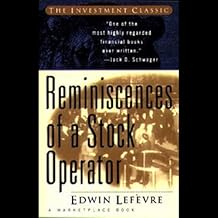
Reminiscences of a Stock Operator
Edwin Lefevre, Rick Rohan, et al.
4.6 on Amazon
35 HN comments
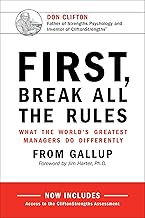
First, Break All the Rules: What the world's Greatest Managers Do Differently
Jim Harter, Marcus Buckingham , et al.
4.6 on Amazon
34 HN comments
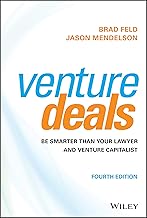
Venture Deals: Be Smarter Than Your Lawyer and Venture Capitalist
Brad Feld and Jason Mendelson
4.7 on Amazon
31 HN comments

Delivering Happiness
Tony Hsieh
4.6 on Amazon
30 HN comments
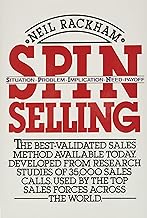
SPIN Selling
Neil Rackham
4.5 on Amazon
30 HN comments

Nickel And Dimed: On (Not) Getting By In America
Barbara Ehrenreich
4.3 on Amazon
29 HN comments

The Five Dysfunctions of a Team: A Leadership Fable
Patrick Lencioni
4.6 on Amazon
28 HN comments

The Startup Owner's Manual: The Step-By-Step Guide for Building a Great Company
Steve Blank and Bob Dorf
4.5 on Amazon
27 HN comments

Give and Take: A Revolutionary Approach to Success
Adam M. Grant PhD, Brian Keith Lewis, et al.
4.6 on Amazon
25 HN comments

Titan: The Life of John D. Rockefeller, Sr.
Ron Chernow
4.7 on Amazon
23 HN comments

The Challenger Sale: Taking Control of the Customer Conversation
Matthew Dixon and Brent Adamson
4.5 on Amazon
22 HN comments
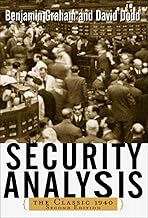
Security Analysis: Principles and Techniques
Benjamin Graham and David Dodd
4.7 on Amazon
22 HN comments
fareeshonAug 3, 2020
An extremely intelligent man, and an inspiration to many all over the world.
tlearonAug 3, 2020
His debates are also great to watch highly recommended.
tacitusarconMar 1, 2021
bennesvigonSep 23, 2016
jumbopapaonMay 27, 2018
seibeljonAug 3, 2020
z9eonAug 3, 2020
His book Basic Economics taught me more than any economics classes did in school.
SantalBlushonAug 3, 2020
jackdiedonMay 4, 2008
PBS made "Free to Choose" into a series back in the 1980s. You can find all the episodes on YouTube.
mrslaveonMay 22, 2018
These controls suffocate supply and now the owners of an artificially scarce basic resource have a lot of power. It's not exactly a surprise.
bassman9000onJune 26, 2021
ekianjoonAug 3, 2020
sbayetaonFeb 6, 2019
keanzuonMar 6, 2020
https://www.amazon.com/Basic-Economics-Thomas-Sowell/dp/0465...
rukittenmeonFeb 5, 2017
I'm not an expert but I believe you can research Austrian Economics, laissez-faire, and Milton Friendman. The deepest I went with the subject was "Basic Economics" by Thomas Sowell. I thought it was a good book and had compelling arguments. Its also very easy to read and American-centric so you have a lot of relatable examples.
ShmulkeyonJune 27, 2010
Basic Economics by Thomas Sowell
Applied Economics by Thomas Sowell
Free to Choose by Milton Friedman (video series, too)
Use of Knowledge in Society by Hayek (short, non-technical paper which is full of brilliant insights): http://www.econlib.org/library/Essays/hykKnw1.html
Not a book, but the Econtalk podcast is fantastic: http://www.econtalk.org/
fidelramosonMay 17, 2021
Negative externalities, like environmental damage, should ideally be internalized, although I grant that this is not always easy. Private ownership of all land might help, as public ownership dilutes responsibility.
> I think your view is extremely naive.
Isn't it interesting that I think the same about your view? :)
edanmonDec 11, 2018
A good book for getting started, IMO, is Charles Wheelan's "Naked Economics".
The first thing that I read was "Basic Economics" by Thomas Sowell, which I liked a lot and highly recommend - however, keep in mind that Thomas Sowell is very capitalist/right leaning, and the book is quite "biased".
A great textbook, if you really want to get further into economics, is Greg Mankiw's Principles of Economics (almost all undergrad economics textbooks are called "Principles of Economics", for some reason, so you have to search by author.) That's definitely the place to go if you want to have a more sophisticated understanding of economics than you'll just get by reading books.
kidintechonDec 16, 2019
General
====
- Master & Margarita (w reader's guide)
- Why we sleep
- The righteous mind: why good people are divided by politics and religion
- The wisdom of insecurity
- The denial of death
- The three body problem (friend's advice: slow burn, stick with it)
- The dubliners
- The devils (Dostoyevski)
- The name of the rose
- Enten-Oller (Kierkegaard)
- Zero to one (Peter Thiel, recommended reading as palantir new joiner - not fantastic but has some thought provoking ideas; i.e. which very important truth would very few people agree with you on?)
Economy/finance
===
- Basic economics (Thomas Sowell)
- How an economy grows and why it crashes
- Know the city
Math
===
- Coffee time in Memphis
- Real analysis (mathematics textbook)
- Problems from the book (Halfway through this one, and I found it really enjoyable, even with only a CS bachelors)
If anyone has read any and has feedback/notes, I'm looking forward to hearing them!
bun_at_workonDec 12, 2018
- Factfulness by Hans Rosling
- The War on Science by Shawn Otto
- Basic Economics by Thomas Sowell
- A Short History of Nearly Everything by Bill Bryson
- The Storm Before the Storm by Mike Duncan
- The Enigma of Reason by Hugo Mercier
Fiction:
- And Then There Were None by Agatha Christie
- The Mistborn Trilogy by Brandon Sanderson
- The Magicians by Lev Grossman
The non-fiction books were all incredible and highly recommended. I especially appreciate The War on Science as it is highly relevant in today's polarized and emotional political climate.
The fiction books were good, for the most part. However, The Magicians might be the worst book I have ever read, not limited to fiction or fantasy. For more on that, ask.
I managed to read significantly more books this year due to joining an at-work book club, which has been very nice.
entropyneuronDec 16, 2019
The wisdom of insecurity: very very good if you are at all interested in the matters it explores
Zero to one: the whole genre of business wisdom books is crap IMHO, but at least this one is short
Basic economics (Thomas Sowell): total must read
generalpassonMar 7, 2020
This is a red herring on the strawman's shoulder. Good. Grief.
I really think you would be much enlightened to listen to Thomas Sowell's Basic Economics audio book. It's really long, but covers this sort of thing just oh so well.
It will help you to answer questions like: how come people in the Soviet Union were starving to death while crops rotted in the field? Among many others...
dmixonFeb 11, 2020
Few people are accepting the fact that Boeing's sweetheart relationship with FAA is a result of the fact they are largely one of the fee only players in the game.
There's no competitive pressure for Boeing to change behaviour iwth the politicians and regulators in their pocket they have little to fear by going forward with business ss usual.
The fact they are managing to push Boeing to adopt more stringent training is good. I just hope it doesn't just add to the long list of things excluding any entrepreneur from honestly competing with him (just look at Virgin Airlines which was one of the most enjoyable flight experiences getting squeezed out).
Every major regulation in history has had unintended side-effects which frequently offset the benefits of the original plan (because of course they were designed for the entrenched mega-coprp interests of today with little thought of the wider long term effects on the industry).
Thomas Sowell wrote two good books which highlight a hundred examples how these well-intentioned regulations have contributed to the wealth inequality and consumer monopolies both [1] and Basic Economics [2].
Its not a simple as anti-regulation or pro-regulation, but getting the right kind of regulation based on data and with foresight into the unintended implications.
[1] https://www.amazon.com/Wealth-Poverty-Politics-Thomas-Sowell...
[2] https://www.amazon.com/Basic-Economics-Fifth-Common-Economy/...
thr0waway1239onSep 10, 2016
I recommend the following books especially - 1. Basic Economics 2. Applied Economics and 3. Knowledge and decisions.
He also produced a crazy detailed trilogy about culture and has written an autobiography which might read a bit like the written version of Mad Men. He often remarks that he is 1/3rd as old as America itself.
And even if you end up completely disagreeing with his opinions, it is worth it to check out at least one of his works to see that it is possible to write economics books which are not utterly boring.
[1] After 9/11, he turned into a slightly loony war hawk. But his best work was produced before that.
te_plattonJune 27, 2010
yaa_minuonApr 14, 2020
It's a fairly detailed book but it's worth the time. If you're too busy to read a whole book, you might want to take a look at "Economics in One Lesson" [2] by Herny Hazlitt.
The foundation for economic education[3] has some great articles too about economics and public choice.
[1]https://www.amazon.com/Basic-Economics-Thomas-Sowel/dp/04650...
[2] https://fee.org/media/14946/economicsinonelesson.pdf
[3] https://fee.org
edanmonJan 18, 2016
The biggest differences in economic debates are not between people who have different viewpoints. The biggest differences are between people who have actually studied economics and know what they're talking about, and most people, who are saying things that don't make sense, and basing most of their arguments on misunderstandings and wishful thinking.
I find that just reading a lot of "real" economics from real economists will usually make everything you read much, much clearer, whether you come at it from the "left" or the "right". I also tend to find that most economists are significantly to the "right" of the standard populace, which would make it even better for your needs. (This could just be my biased reading habits, but I think not - I have other thoughts on the subject but they're not for now).
Now, how can you go about reading real economists? The best way is to actually study economics, which you can do either via online videos (plenty of them available) or reading a textbook. I recommend Mankiw's "Principles of Economics" textbook, it's very readable.
If you don't have the time/inclination for reading a whole textbook, the next best thing is to read more "introduction to economics" books. A few that I highly recommend:
1. Basic Economics - Thomas Sowell. Brilliant book, was my first introduction to real economics. Most people will say it's heavily biased to the "right", so could be good for your usecase, but keep it in mind.
2. Naked Economics - Charled Wheelan. A bit shorter and lighter than Sowell, but a great book. I think it's a lot more balanced.
3. Great Courses courses on economics (audiobooks). A good one to start with is "Economics" by Timothy Taylor.
After this you can dive deeper into specific questions/areas you care about, e.g. there are brilliant courses by the Great Courses on how the stock market works, etc. Very useful to know what's actually going on in the world.
mr_overallsonAug 3, 2020
Sowell is a free-market fundamentalist, in that he opposes most government intervention in markets, and universally trusts laissez-faire capitalism to provide the optimal social & economic good for practically any situation.
The problem with this position is that there's simply a ton of evidence that targeted government intervention provides far better outcomes in many situations.
Another classic example is environmental pollution, a classic case of tragedy of the commons. On the topic of global warming, Sowell doesn't even try to address the issue. He belives climate change is a hoax perpetuated by Democrats.
https://wattsupwiththat.com/2019/01/27/sowell-the-catchwords...
Sowell writes in a conversational style, which is great for accessibility for non-economics. However, he is rightly criticized as failing to cite rigorous studies to back up his opinions.
For a more balanced view of basic economics, I'd highly recommend Principles of Economics by Greg Mankiw.
tdylanonOct 1, 2015
Short version: Supply (housing) is being artificially restrained from being built out (through regulation). While demand (those moving to the area) keeps increasing. Low supply and high demand = higher prices.
Solution: Build more housing.
It's a simple problem, navigating the bureaucracy is the hard part.
mikeleeorgonJune 27, 2010
Here is a direct link to it on Amazon (reviewers here gave it high ratings as well):
http://www.amazon.com/Basic-Economics-3rd-Ed-Economy/dp/0465...
JadoJodoonSep 1, 2020
“The most fundamental reason why there is no such thing as an objective or “real” value is that there would be no rational basis for economic transactions if there were. When you pay a dollar for a newspaper, obviously the only reason you do so is that the newspaper is more valuable to you than the dollar is.
At the same time, the only reason people are willing to sell the newspaper is that a dollar is more valuable to them than the newspaper is. If there were any such thing as a “real” or objective value of a newspaper—or anything else—neither the buyer nor the seller would benefit from making a transaction at a price equal to that objective value, since what would be acquired would be of no greater value than what was given up. In that case, why bother to make the transaction in the first place?”
brickmortonAug 3, 2020
mindcrimeonJan 13, 2018
Fahrenheit 451 - Ray Bradbury
Nineteen Eighty-Four - George Orwell
The Fountainhead - Ayn Rand
Atlas Shrugged - Ayn Rand
Basic Economics - Thomas Sowell
The World Is Flat - Thomas Friedman
The Four Steps To The Epiphany - Steve Blank
The Game - Neil Strauss
The Selfish Gene - Richard Dawkins
Ultra Marathon Man - Dean Karnazes
billswiftonJune 27, 2010
Another really good, if idiosyncratic, book is David Friedman's Hidden Order: The Economics of Everyday Life.
Also Thomas Sowell's Knowledge and Decisions covers roughly the same ground as Hayek's Use of Knowledge in Society, but is newer and more readable.
mindcrimeonJuly 16, 2020
The 48 Rules of Power - Robert Greene
Fooled By Randomness - Nassim Nicholas Taleb
How to Fail at Almost Everything and Still Win Big - Scott Adams
Basic Economics - Thomas Sowell
The World Is Flat - Thomas L. Friedman
The Penguin History of the World: Sixth Edition - J. M. Roberts and Odd Arne Westad